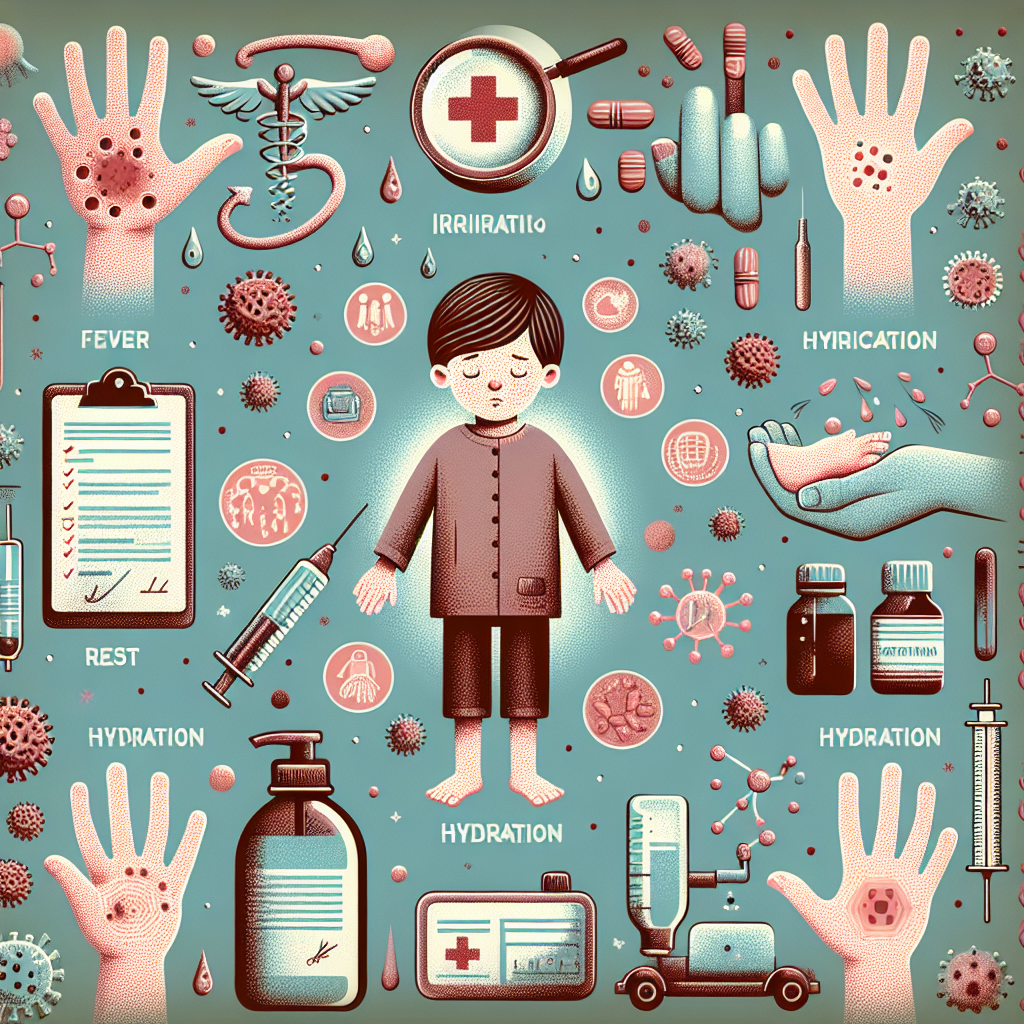Child Development: A Complete Guide to the Essential Stages
Introduction
Child growth and development are topics that interest every parent. From the first smiles to walking without help, every stage in the development of the little ones is essential and requires proper attention and care. In this article, we will explore the various stages of a child's development and how mothers can support this process, with a special focus on a common childhood illness: Hand-Foot-Mouth Disease.
Stage Newborn
The first weeks of a baby's life are critical, marked by adaptation to life outside the womb. Newborns learn to breathe, feed and sleep at a steady pace. Mothers can ensure a peaceful transition for newborns by providing nursing on demand, comfort and emotional security through hugs and gentle touch.
Infant stage
The infant period (from 1 to 12 months) is all about exploration and discovery. Babies learn to roll over, sit up, babble and even take their first steps. It is important for mothers to create a safe environment for them to explore and encourage development through play and social interactions.
Toddler Stage (1-3 years)
Early childhood is a stage full of energy and curiosity. Little ones are starting to talk, interact more and develop their fine motor skills. Parents can support this development through a balanced diet, encouraging creative play and laying the foundations for education through books and educational activities.
Preschool Stage (3-5 years)
Preschoolers are little explorers with rich imaginations. They develop their language, the ability to follow instructions and begin to form their first friendships. Interaction and play are key at this time, and mothers can involve children in group activities, role-play and begin to explain more complex notions about the world around them.
School Stage (6-12 years)
As children enter the school system, they learn new skill sets – from writing and reading to math and science. It is essential to maintain a balance between formal education and extracurricular activities, while ensuring that free time and play are not neglected.
Adolescent Stage (13-18 years)
Adolescence brings significant physical and emotional changes. Teenagers form their identity, self-worth and begin to think critically. Communication and emotional support from family is crucial during this transition to adulthood.
Hand, Foot and Mouth Disease: Symptoms and Treatment
A special chapter in the child's development is his health. Hand-foot-mouth disease is a common viral infection in children caused by several types of viruses, including Coxsackie. It usually affects children younger than 5, but it can also occur in adults.
Symptoms of Hand-Foot-Mouth Disease
Symptoms develop after an incubation period of 3-6 days and may include:
- Fever
- Sore throat
- Decreased appetite
- Red spots with blisters on the tongue, gums and inside of the cheeks
- Rashes on the palms and soles, sometimes also on the knees, elbows, buttocks or genital area
Early detection of these signs can help prompt treatment and prevent the virus from spreading.
Treatment for Hand-Foot-Mouth Disease
Although the illness usually resolves on its own within 7-10 days, there are some steps parents can take to relieve symptoms:
- Administration of antipyretics (paracetamol or ibuprofen) for fever and pain
- Applying cold compresses or baths at comfortable temperatures to reduce fever
- Encourage fluid intake to prevent dehydration
- Avoiding acidic or salty foods, which can irritate oral lesions
In case of severe dehydration or feeding difficulties, it is essential to consult the pediatrician.
Prevention of Hand-Foot-Mouth Disease
To prevent the transmission of the viruses that cause this disease, it is important:
- Frequent hand washing
- Disinfection of toys and surfaces
- Avoiding contact with infected people
Conclusion
Vigilance and continued education of mothers about the child's developmental stages is crucial. In the case of common illnesses such as Hand-Foot-Mouth Disease, recognizing the symptoms and prompt intervention can make the difference in the speedy recovery of little ones. By knowing the stages of development and having a knowledge kit on child health care, parents can actively contribute to a healthy and happy childhood.
We are glad you read this article and wish you a wonderful experience with your child. For more resources and helpful tips, subscribe to our newsletter or visit the parenting section of our online store.














































































































































